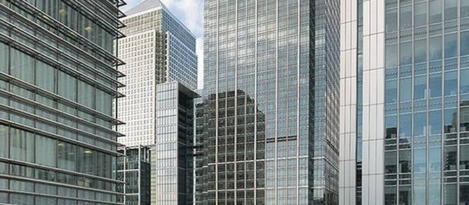September 6, 2016
Two thirds of US gig economy workers would choose not to repeat the experience 0
 While the number of independent workers in the US gig economy is expected to grow to 54 million people by 2020 and some 40 percent of workers have already experienced it according to MBO Partners: State of Independence in America 2016, a new online poll by Deloitte of nearly 4,000 workers found that 67 percent of those who have worked as an independent contractor would choose not to do so again in future. Additionally, more than 60 percent of employed workers said that their stability would suffer if they moved to independent contract work, and 42 percent worry about sacrificing good compensation and benefits. Four-in-ten respondents (41 percent) recognise that independent contracting offers more flexibility to work where, when, and how they want to as compared to full-time employment. However, respondents cite inconsistent cash flow and lack of employer-paid benefits as drawbacks that discourage them from pursuing independent work.
While the number of independent workers in the US gig economy is expected to grow to 54 million people by 2020 and some 40 percent of workers have already experienced it according to MBO Partners: State of Independence in America 2016, a new online poll by Deloitte of nearly 4,000 workers found that 67 percent of those who have worked as an independent contractor would choose not to do so again in future. Additionally, more than 60 percent of employed workers said that their stability would suffer if they moved to independent contract work, and 42 percent worry about sacrificing good compensation and benefits. Four-in-ten respondents (41 percent) recognise that independent contracting offers more flexibility to work where, when, and how they want to as compared to full-time employment. However, respondents cite inconsistent cash flow and lack of employer-paid benefits as drawbacks that discourage them from pursuing independent work.







 Management behaviour is contributing to rising workplace stress levels with employees blaming their own bosses for adding to the pressures they feel, a new study of 1,200 people by MetLife claims. The study suggests that 69 percent of employees say that the behaviour of managers in their organisation has increased stress and that the rising stress is having a major impact on company performance. Around 45 percent of employees say that stress caused by management has led to staff in their organisation taking extended time off. This in turn increases costs and affects productivity as well as impacting other workers who take on an increased workload. Government data estimates that around 35 percent of all work-related ill-health is caused by stress and that stress accounts for 43 percent of all working days lost to ill-health – the equivalent of 9.9 million working days a year at an average of 23 days per case.
Management behaviour is contributing to rising workplace stress levels with employees blaming their own bosses for adding to the pressures they feel, a new study of 1,200 people by MetLife claims. The study suggests that 69 percent of employees say that the behaviour of managers in their organisation has increased stress and that the rising stress is having a major impact on company performance. Around 45 percent of employees say that stress caused by management has led to staff in their organisation taking extended time off. This in turn increases costs and affects productivity as well as impacting other workers who take on an increased workload. Government data estimates that around 35 percent of all work-related ill-health is caused by stress and that stress accounts for 43 percent of all working days lost to ill-health – the equivalent of 9.9 million working days a year at an average of 23 days per case.






















July 28, 2016
Working in an office is NOT as bad as smoking, whatever you might read 0
by Mark Eltringham • Comment, Knowledge, Wellbeing, Workplace, Workplace design
(more…)